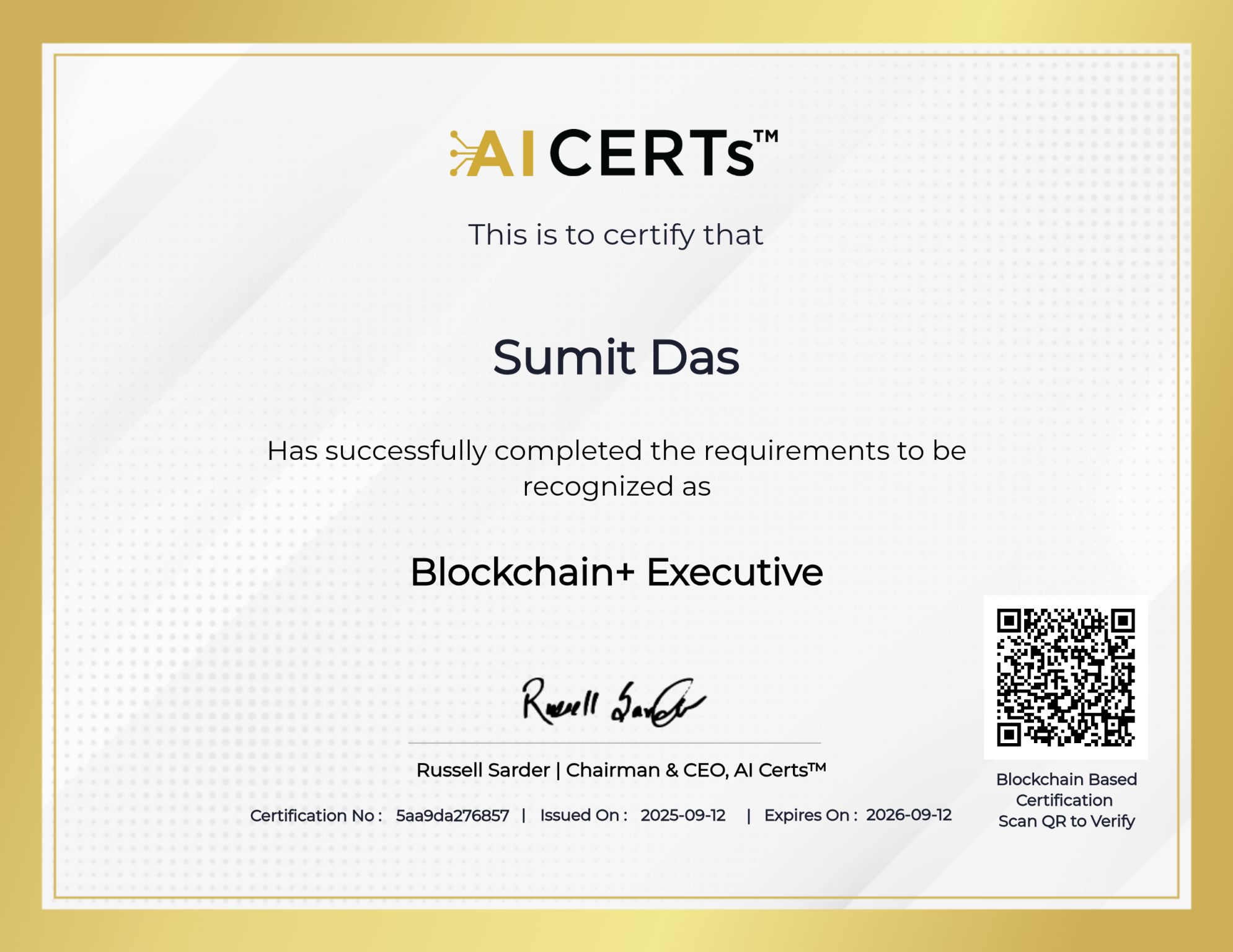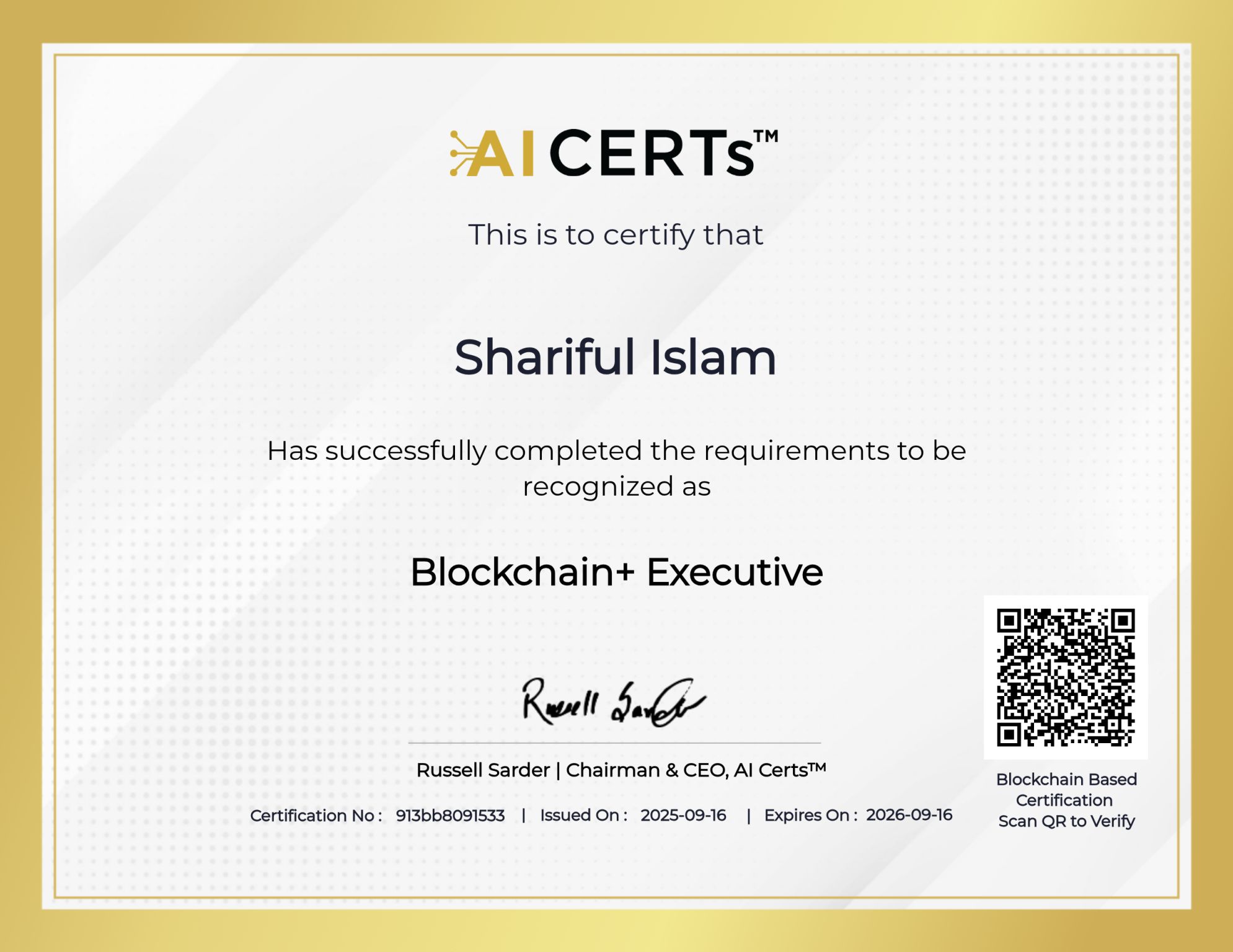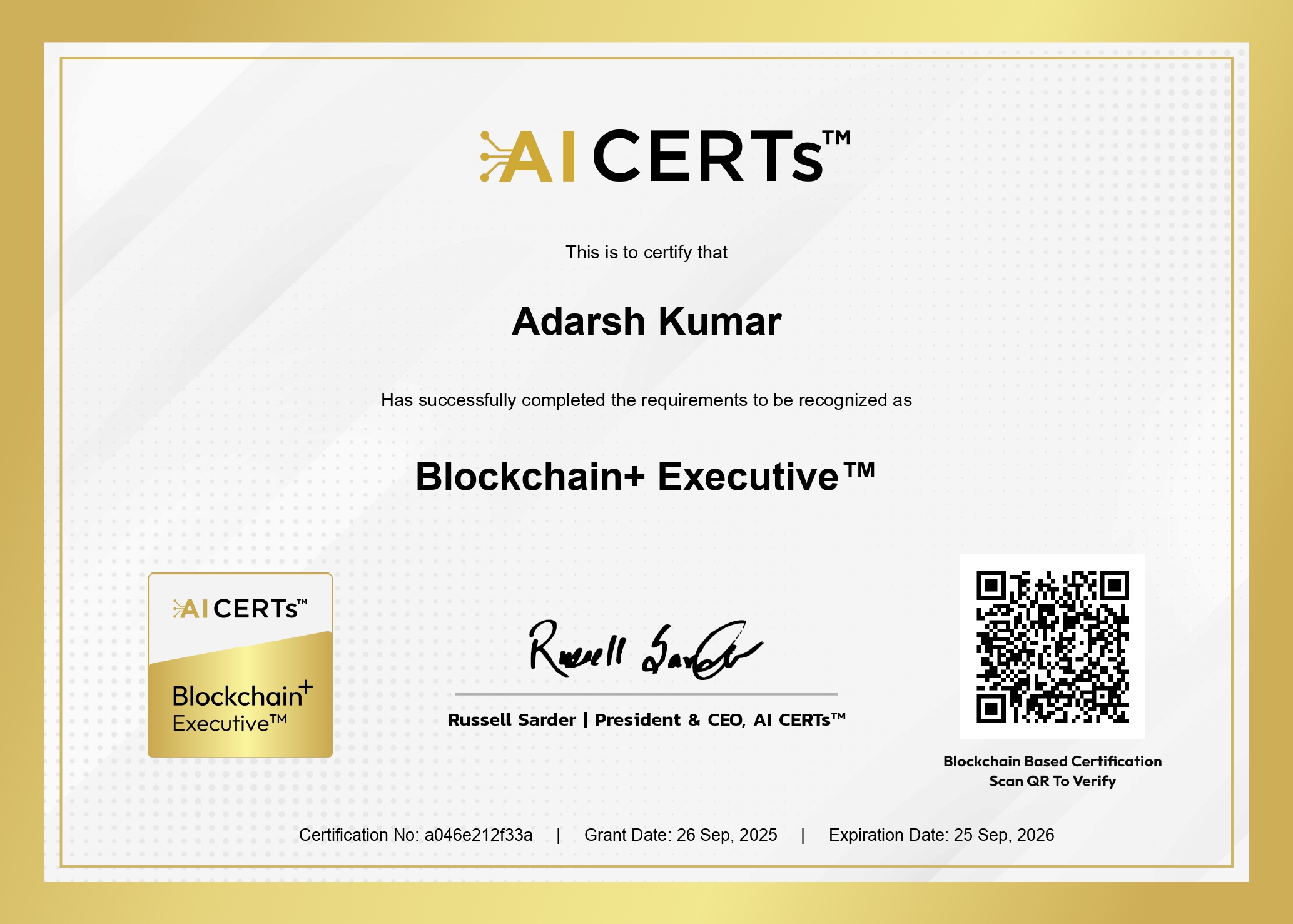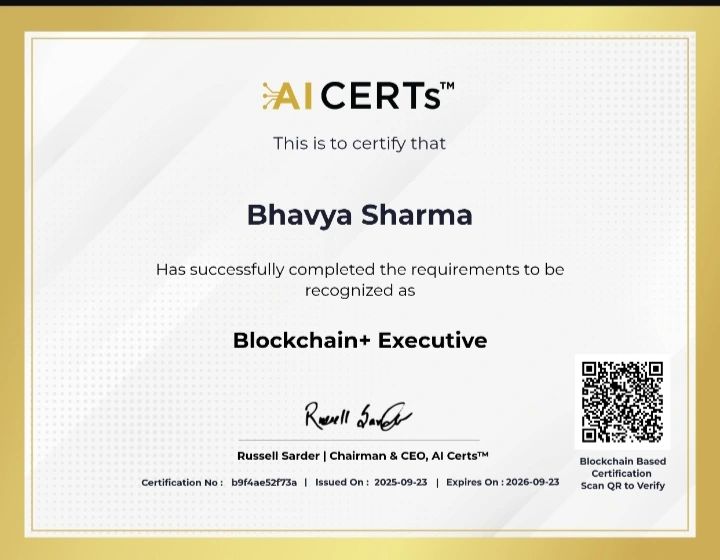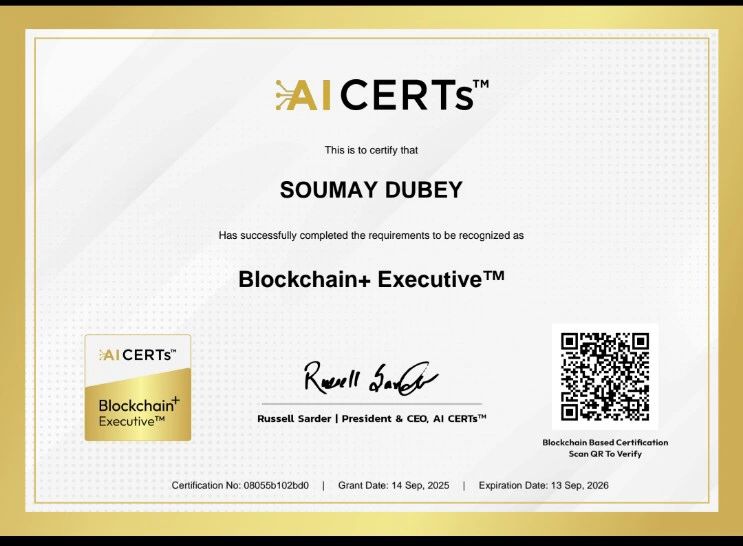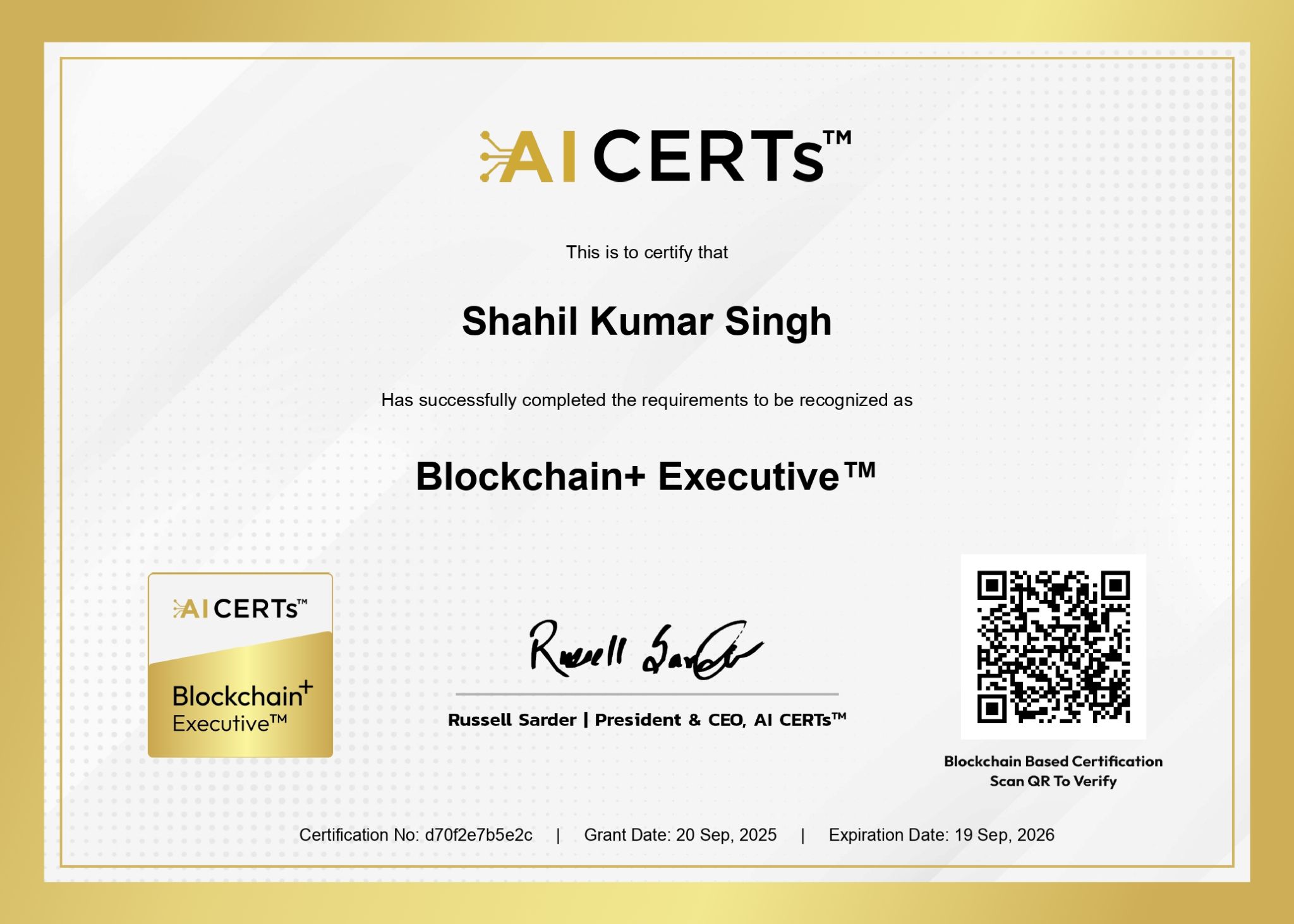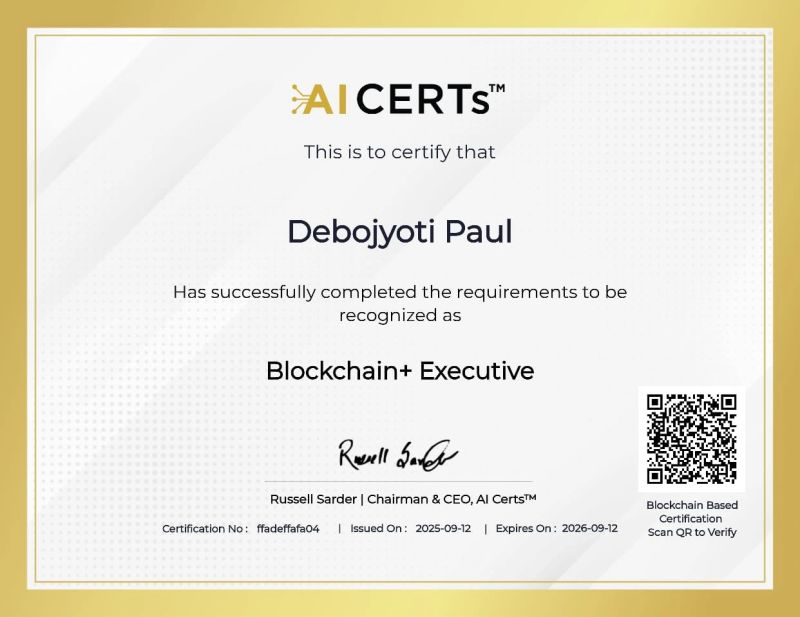Home » All Certifications » Blockchain & Bitcoin » Blockchain+ Executive™
| Modules | Percentage |
|---|---|
| Introduction to Blockchain Technology | 6 |
| Blockchain Ecosystem Features | 9 |
| Real-World Use Cases and Projects | 7 |
| Blockchain in Finance | 9 |
| Blockchain in Supply Chain Management | 9 |
| Blockchain in Healthcare | 9 |
| Blockchain in Government and Public Services | 9 |
| Legal And Regulatory Considerations | 9 |
| Privacy and Security in Blockchains | 9 |
| Economic Impacts of Blockchains | 9 |
| Future Trends in Blockchains | 9 |
| Case Studies and Practical Applications | 6 |




Showcase your expertise to potential employers and professional connections.
Your certificate is secured on the blockchain for tamper-proof authenticity and can be downloaded as a high-quality PDF for personal records or professional sharing.
Celebrate your accomplishment with your network on all social platforms.



Develop and oversee blockchain-based products, aligning with market needs for effective delivery.
Conceptualize blockchain solutions, building infrastructure for innovation.
Assess opportunities, optimize processes, and design strategies for enterprise growth.
Advise on adoption, implementation, and optimization of blockchain technology, addressing challenges and scaling opportunities.

